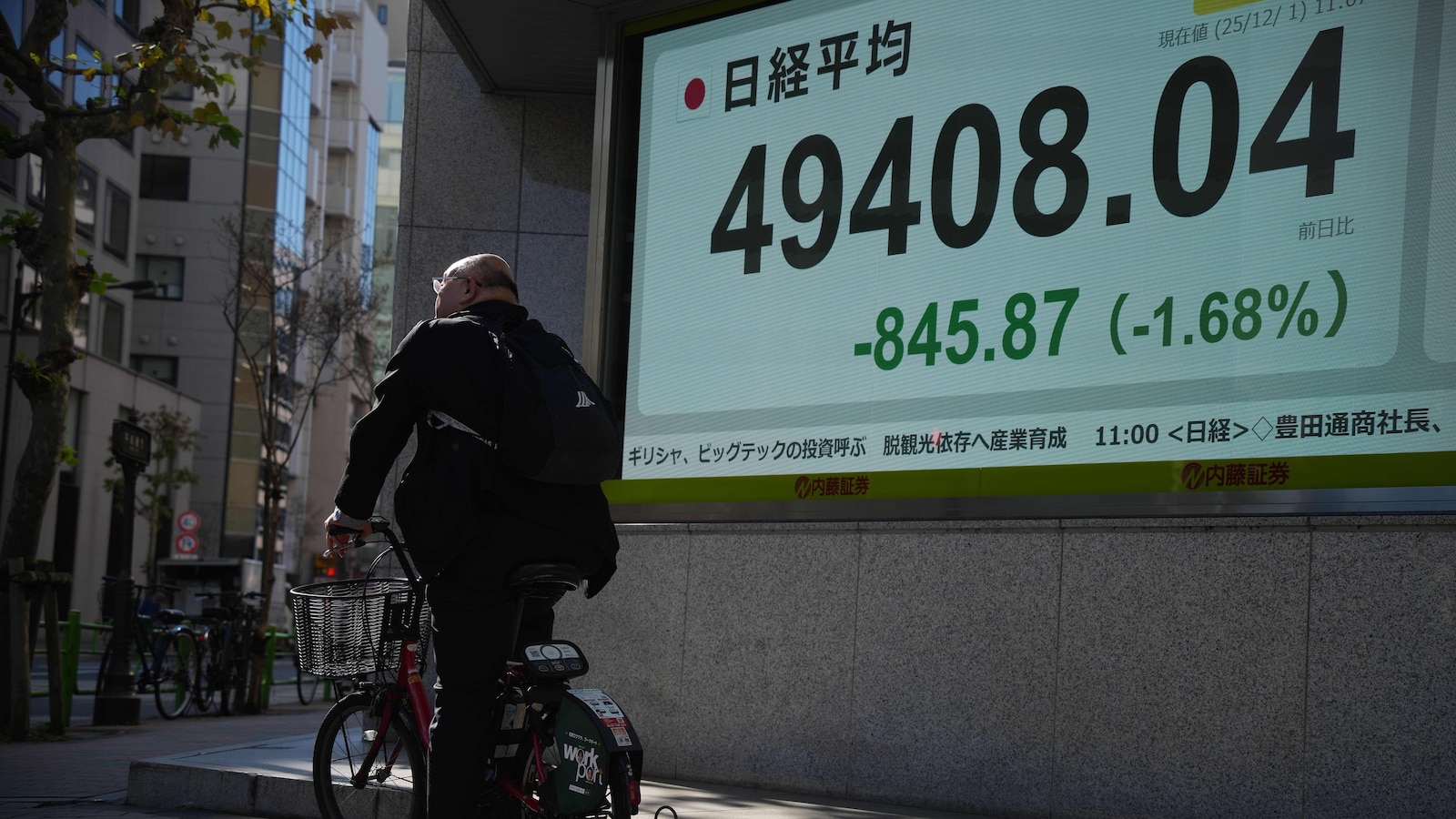Hyatt Advances Luxury Brand Focus with New Leadership and Planned Global Expansion in 2026
Hyatt appoints Tamara Lohan to lead its luxury brands; shares preview of extraordinary openings worldwide
CHICAGO (December 3, 2025) – Hyatt Hotels Corporation (NYSE: H) today announced at ILTM Cannes the next chapter of Hyatt’s luxury journey, unveiling strengthened leadership with the appointment of Tamara Lohan as Global Brand Leader – Luxury on an interim basis and previewing a remarkable pipeline of luxury openings set for 2026.
“Hyatt’s momentum in luxury continues to accelerate, powered by our insights-driven development strategy and commitment to delivering deeply resonant guest experiences,” said Mark Hoplamazian, President and Chief Executive Officer, Hyatt. “Tamara brings world-class luxury expertise, and her leadership will further strengthen our ability to differentiate our luxury brands while growing with intent in the markets our guests and owners value most.”
Lohan joined Hyatt in 2023 through the acquisition of Mr & Mrs Smith, the award-winning boutique and luxury hotel platform she co-founded and led for more than two decades. Known for curating exceptional independent hotels and championing design-forward, experience-rich travel, she brings deep expertise in personalization, global luxury trends and consumer insights. In her new role as Global Brand Leader – Luxury, she will guide Hyatt’s global luxury brand strategy while elevating brand consistency and guest experiences across Hyatt’s luxury portfolio.
“When Hyatt acquired Mr & Mrs Smith, it was clear how deeply Hyatt respects independent spirit, design integrity and the craft of luxury,” said Tamara Lohan, Global Brand Leader – Luxury, Hyatt. “It’s a privilege to help shape the future of what luxury means for Hyatt, and I’m excited to develop the brands in our portfolio and take our guests on even more personal experiences whilst thoughtfully growing the collection.”
With nearly 125 luxury hotels representing more than 21,000 rooms worldwide, Hyatt’s luxury portfolio – which includes the Park Hyatt, Alila, Miraval, Impression by Secrets and The Unbound Collection by Hyatt brands – continues to expand strategically in the destinations that matter most to guests, members, customers, travel advisors and owners.
Set to open in the first quarter of 2026, Miraval The Red Sea will mark the brand’s first resort outside the United States and a defining moment for luxury wellness in the EAME region. Located on Saudi Arabia’s Shura Island, the adults-only retreat will feature 180 guestrooms and suites, immersive wellbeing programming and the largest spa in the Red Sea destination.
Miraval’s international expansion underscores the rising global demand for transformative travel – nearly 50 percent of travelers1 now define luxury as deeply personalized experiences, aligning closely with Miraval’s focus on spiritual, emotional and physical renewal.
Hyatt will continue to expand its luxury brand footprint through 2026 with openings across its most sought-after brands:
- Park Hyatt celebrates the reopening of Park Hyatt Tokyo and will introduce Park Hyatt Cabo del Sol, Park Hyatt Cancun, Park Hyatt Mexico City, Park Hyatt Vancouver and Park Hyatt Phu Quoc over the coming year.
- Alila will strengthen Hyatt’s portfolio in Mexico with the opening of Alila Mayakoba, bringing the brand’s refined, immersive luxury to Riviera Maya.
- The Unbound Collection by Hyatt grows in EAME with Kennedy 89 in Frankfurt, Germany and a new coastal experience in Nice, France.
These additions contribute to Hyatt’s strong luxury chain scale pipeline of more than 170 hotels representing 141,000 rooms globally.
“As we approach a new calendar year, ILTM Cannes serves not only as a moment to celebrate what we’ve accomplished in 2025, but as a powerful catalyst for what’s to come,” remarks Marc Jacheet, Group President, EAME, Hyatt. “This winter marks a defining moment in Hyatt’s luxury growth story, as the Miraval brand debuts on the international stage in the Red Sea – a sanctuary for wellbeing explorers and discerning adventurers alike spanning over 3 million square feet of pristine coastline and offering one of the largest spas in the region with 40,000 square feet and 39 treatment rooms. With an ever-expanding, world-class luxury portfolio across EAME, Hyatt continues to set new benchmarks in hospitality and remains a driving force behind our global growth journey.”
For more information or to book a stay, please visit hyatt.com.
The term “Hyatt” is used in this release for convenience to refer to Hyatt Hotels Corporation and/or one or more of its affiliates.
About Hyatt Hotels Corporation
Hyatt Hotels Corporation, headquartered in Chicago, is a leading global hospitality company guided by its purpose – to care for people so they can be their best. As of September 30, 2025, the Company’s portfolio included more than 1,450 hotels and all-inclusive properties in 82 countries across six continents. The Company’s offering includes brands in the Luxury Portfolio, including Park Hyatt®, Alila®, Miraval®, Impression by Secrets, and The Unbound Collection by Hyatt®; the Lifestyle Portfolio, including Andaz®, Thompson Hotels®, The Standard®, Dream® Hotels, The StandardX, Breathless Resorts & Spas®, JdV by Hyatt®, Bunkhouse® Hotels, and Me and All Hotels; the Inclusive Collection, including Zoëtry® Wellness & Spa Resorts, Hyatt Ziva®, Hyatt Zilara®, Secrets® Resorts & Spas, Dreams® Resorts & Spas, Hyatt Vivid® Hotels & Resorts, Sunscape® Resorts & Spas, Alua Hotels & Resorts®, and Bahia Principe Hotels & Resorts; the Classics Portfolio, including Grand Hyatt®, Hyatt Regency®, Destination by Hyatt®, Hyatt Centric®, Hyatt Vacation Club®, and Hyatt®; and the Essentials Portfolio, including Caption by Hyatt®, Unscripted by Hyatt, Hyatt Place®, Hyatt House®, Hyatt Studios®, Hyatt Select, and UrCove. Subsidiaries of the Company operate the World of Hyatt® loyalty program, ALG Vacations®, Mr & Mrs Smith, Unlimited Vacation Club®, Amstar® DMC destination management services, and Trisept Solutions® technology services. For more information, please visit www.hyatt.com.
Forward-Looking Statements
Forward-Looking Statements in this press release, which are not historical facts, are forward-looking statements within the meaning of the Private Securities Litigation Reform Act of 1995. Our actual results, performance or achievements may differ materially from those expressed or implied by these forward-looking statements. In some cases, you can identify forward-looking statements by the use of words such as “may,” “could,” “expect,” “intend,” “plan,” “seek,” “anticipate,” “believe,” “estimate,” “predict,” “potential,” “continue,” “likely,” “will,” “would” and variations of these terms and similar expressions, or the negative of these terms or similar expressions. Such forward-looking statements are necessarily based upon estimates and assumptions that, while considered reasonable by us and our management, are inherently uncertain. Factors that may cause actual results to differ materially from current expectations include, but are not limited to: general economic uncertainty in key global markets and a worsening of global economic conditions or low levels of economic growth; the rate and pace of economic recovery following economic downturns; global supply chain constraints and interruptions, rising costs of construction-related labor and materials, and increases in costs due to inflation or other factors that may not be fully offset by increases in revenues in our business; risks affecting the luxury, resort, and all-inclusive lodging segments; levels of spending in business, leisure, and group segments, as well as consumer confidence; declines in occupancy and average daily rate; limited visibility with respect to future bookings; loss of key personnel; domestic and international political and geopolitical conditions, including political or civil unrest or changes in trade policy; the impact of global tariff policies or regulations; hostilities, or fear of hostilities, including future terrorist attacks, that affect travel; travel-related accidents; natural or man-made disasters, weather and climate-related events, such as hurricanes, earthquakes, tsunamis, tornadoes, droughts, floods, wildfires, oil spills, nuclear incidents, and global outbreaks of pandemics or contagious diseases, or fear of such outbreaks; our ability to successfully achieve specified levels of operating profits at hotels that have performance tests or guarantees in favor of our third-party owners; the impact of hotel renovations and redevelopments; risks associated with our capital allocation plans, share repurchase program, and dividend payments, including a reduction in, or elimination or suspension of, repurchase activity or dividend payments; the seasonal and cyclical nature of the real estate and hospitality businesses; changes in distribution arrangements, such as through internet travel intermediaries; changes in the tastes and preferences of our customers; relationships with colleagues and labor unions and changes in labor laws; the financial condition of, and our relationships with, third-party owners, franchisees, and hospitality venture partners; the possible inability of third-party owners, franchisees, or development partners to access the capital necessary to fund current operations or implement our plans for growth; risks associated with potential acquisitions and dispositions and our ability to successfully integrate completed acquisitions with existing operations or realize anticipated synergies; failure to successfully complete proposed transactions, including the failure to satisfy closing conditions or obtain required approvals; our ability to successfully complete dispositions of certain of our owned real estate assets within targeted timeframes and at expected values; our ability to maintain effective internal control over financial reporting and disclosure controls and procedures; declines in the value of our real estate assets; unforeseen terminations of our management and hotel services agreements or franchise agreements; changes in federal, state, local, or foreign tax law; increases in interest rates, wages, and other operating costs; foreign exchange rate fluctuations or currency restructurings; risks associated with the introduction of new brand concepts, including lack of acceptance of new brands or innovation; general volatility of the capital markets and our ability to access such markets; changes in the competitive environment in our industry, industry consolidation, and the markets where we operate; our ability to successfully grow the World of Hyatt loyalty program and manage the Unlimited Vacation Club paid membership program; cyber incidents and information technology failures; outcomes of legal or administrative proceedings; and violations of regulations or laws related to our franchising business and licensing businesses and our international operations; and other risks discussed in the Company’s filings with the U.S. Securities and Exchange Commission (“SEC”), including our annual report on Form 10-K and our Quarterly Reports on Form 10-Q, which filings are available from the SEC. These factors are not necessarily all of the important factors that could cause our actual results, performance or achievements to differ materially from those expressed in or implied by any of our forward-looking statements. We caution you not to place undue reliance on any forward-looking statements, which are made only as of the date of this press release. We undertake no obligation to update publicly any of these forward-looking statements to reflect actual results, new information or future events, changes in assumptions or changes in other factors affecting forward-looking statements, except to the extent required by applicable law. If we update one or more forward-looking statements, no inference should be drawn that we will make additional updates with respect to those or other forward-looking statements.







